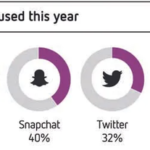7 Best Link Shorteners to Shorten that URL
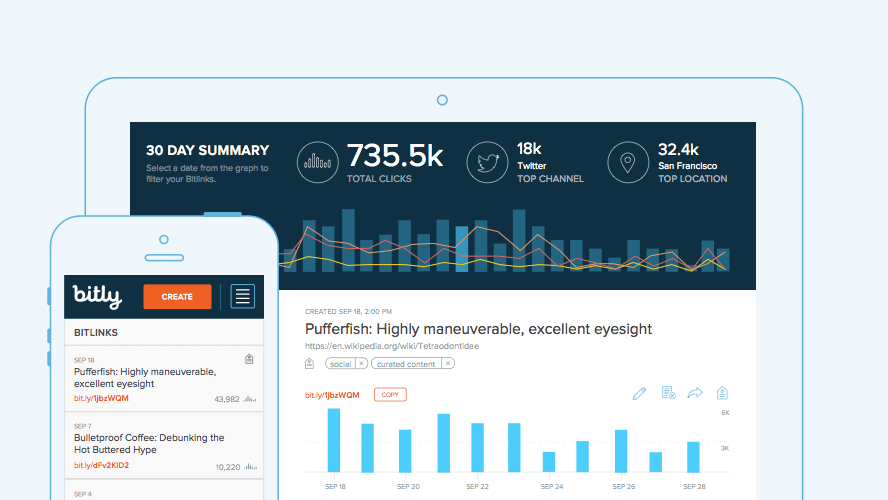
Trying to convince people to click on a long, jumbled link is almost as bad as a door-to-door salesman trying to sell people financial services.
If your audience sees a link they perceive to be spammy in one of your social media posts, they’ll do the digital equivalent of slamming the door in your face — scroll past it.
To avoid being perceived as spammy or sloppy when you have a legitimate link to share, check out our list of the seven best link shorteners that’ll clip your links into clean, consistent, and clickable URLs.
What are the benefits of using link shorteners?
Using link shorteners can benefit your brand in three main ways:
- When you post long links on social media, it can look like spam or deter users from clicking on something they don’t recognize. In particular, adding tracking parameters to your links can result in URLs that look long and confusing to someone who’s unfamiliar with typical link tracking practices. Link shorteners can prune spammy-looking links into clear and concise links.
- Many link shorteners also let you track each of your link’s performance and analytics, which can help you understand which pieces of content perform best on specific platforms.
- Every social media network limits the amount of characters you can include in your posts. Twitter and LinkedIn have the shortest character limits at 280 and 700 characters, respectively, so if you need to squeeze a link or an extra hashtag in one of your posts, link shorteners can help you stay within the limit.
1. Bit.ly
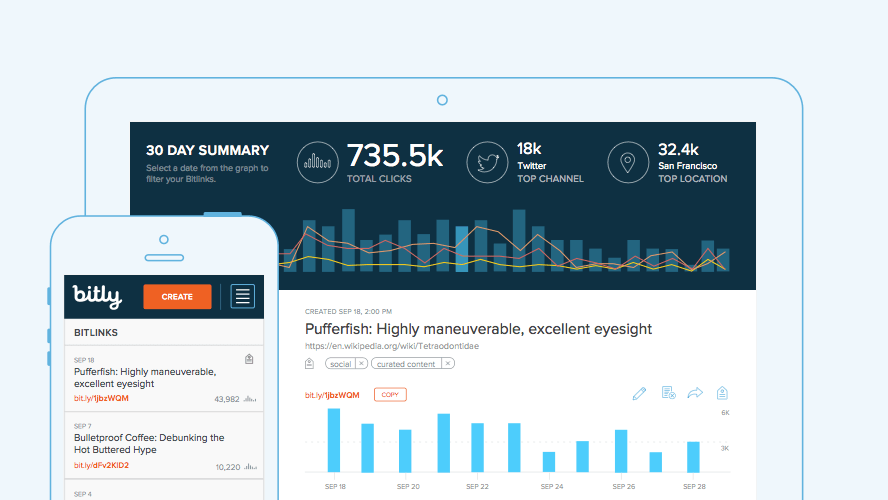
Bit.ly is a link shortener platform that features a comprehensive dashboard displaying your links’ performance metrics, such as click-through rates, channel stats, and geographic information of the people clicking on your links.
They also offer branded links and have integrations with social media management software, like Sprinklr, Sprout Social, Buffer, Hootsuite, and HubSpot to help you seamlessly distribute your shortened links through your social media profiles.
Bit.ly’s free account offers up to 1,000 unbranded links and link reporting for 30 days, which is ideal for small businesses. Their enterprise plan lets you brand 3,000+ links a month and provides all the data and metrics mentioned above, which is best for large businesses who want to brand and track every link in their marketing campaigns.
2. Bl.ink
-8.png)
As one of the more robust link shorteners out there, Bl.ink offers smart branded links that allow you to create custom links that contain relevant words and not just a random string of characters.
They also provide analytic reports that can track clicks by date, time, language, referrers, device, and location and integrate with web analytic tools like Google Analytics and Adobe.
Bl.ink offers six subscriptions tiers from a free to an enterprise plan. Starting at $12 per month, they price their plans based off the amount of links you’d like create and track.
3. Rebrand.ly
-5.png)
Trusted by over 250,000 customers, Rebrand.ly is a link shortener platform that can brand your links, track their performance metrics, or integrate with over 50 other platforms to seamlessly distribute your links.
With three plans for individuals and two plans for teams, Rebrand.ly offers link shortening solutions for both small business and enterprise companies. For instance, their free plan offers 5,000 tracked clicks, 500 branded links, and 5 custom domain names, while their premium plan offers 1,500,000 tracked clicks, 150,000 branded links, and 20 custom domain names for $499 per month.
4. Ow.ly
-4.png)
Developed by the social media management platform, Hootsuite, Ow.ly is a link shortener that’s included in every free Hootsuite account. With Ow.ly, you can distribute your links and track their performance metrics directly in the Hootsuite platform, which allows you to shorten every single link you post to all your social media profiles. Ow.ly is a great option for anyone who already uses Hootsuite as their social media management platform.
5. Buff.ly
-4.png)
Image Source
Similar to Hootsuite’s link shortener tool, Buff.ly is integrated in Buffer, another social media management platform. With Buff.ly, you can shorten your links, customize them, distribute them to all your social media profiles, and track their performance metrics right in the Buffer platform. Buff.ly is perfect for anyone who uses Buffer as their social media management platform.
6. TinyURL
TinyURL is a free link shortening platform that’s perfect for users who have one-off links they want to shorten.
Using TinyURL is simple. All you have to do is go to TinyURL.com and follow the instructions. You can quickly fill in the link you want a short URL for, as well as a custom alias. If no one uses your alias, the link you will get will look something like “tinyurl.com/alias.”
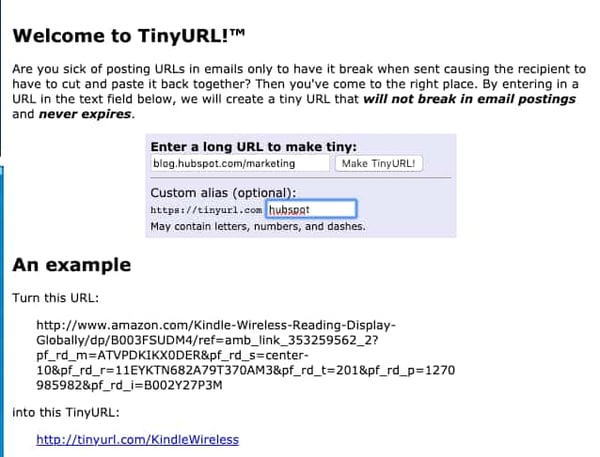
Once you fill in the URL information and press submit, you’ll be shown three types of URLs: the long link, a generated short link, and a third that can serve as a web page’s preview link. Here’s an example:
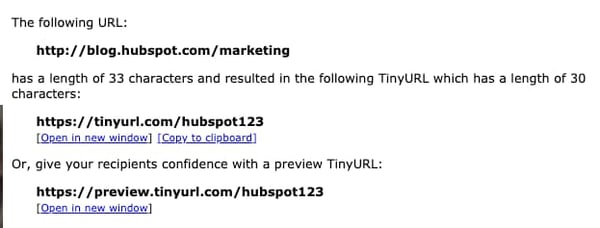
7. Tiny.CC
Tiny.CC is another free link shortener that allows you to create temporary short links by simply pasting your long link into a text box and pressing Shorten. Like TinyURL, you can also customize these links.
If you register or become a paid subscriber, you can have non-expiring links and edit URLs later. If you’re a free user, the link will eventually expire and you cannot edit them once they’re generated.
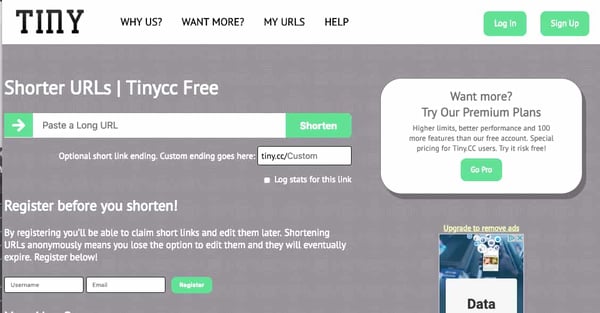
Navigating Link Shorteners
If you have to share a few ginormous links, there’s no harm in shortening them because the process is quick and simple. Aside from being easier to look at, shortened links can also be helpful for print ads, physical signage, or places where you can’t link to another site.
There are a handful of free or affordable link shortening websites out there. But you might be wondering which to choose. To help you, we’ll leave you with two quick tips:
- If you don’t use an analytics software, like Google, you might want to use a link-shortener that includes basic stats, like page views.
- On the other hand, if you want to customize your link, you’ll also want a shortener that allows you to do that.
After you master shortening your URLs, you might also want to look into a similar process of creating QR codes. If so, check out this guide for tips and tricks.
Editor’s note: This post was originally published in January 2019 and has been updated for comprehensiveness.
![]()
Trying to convince people to click on a long, jumbled link is almost as bad as a door-to-door salesman trying to sell people financial services.



